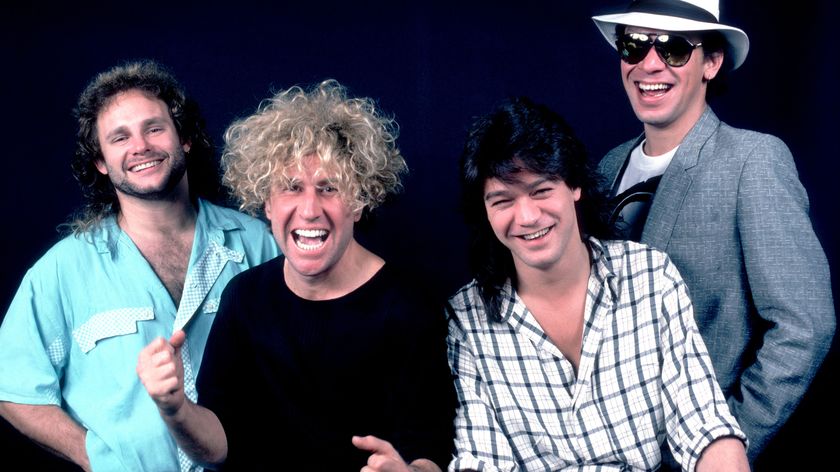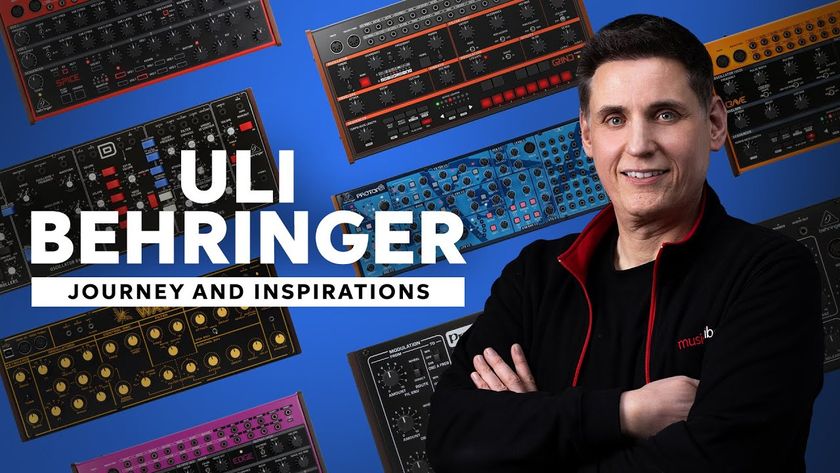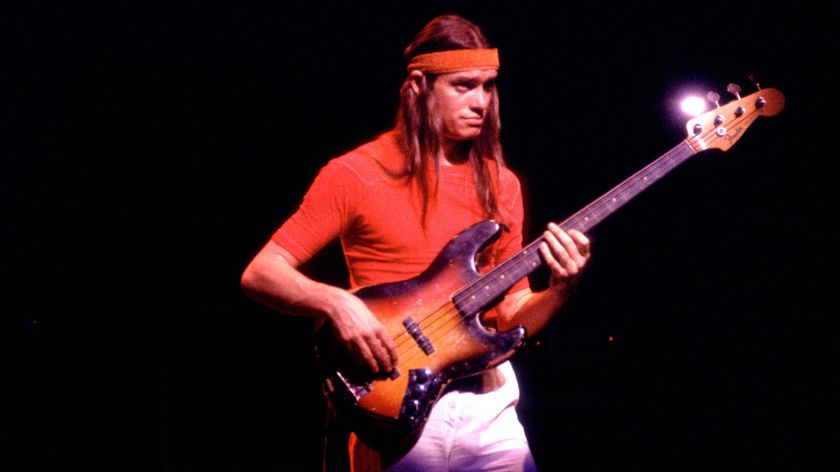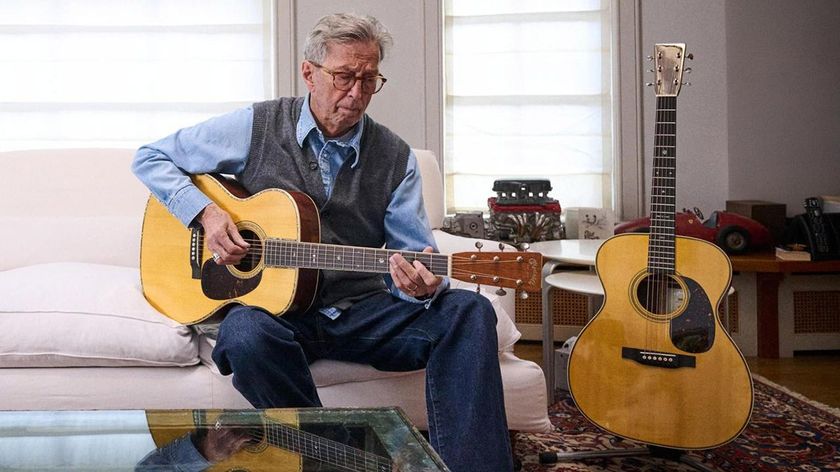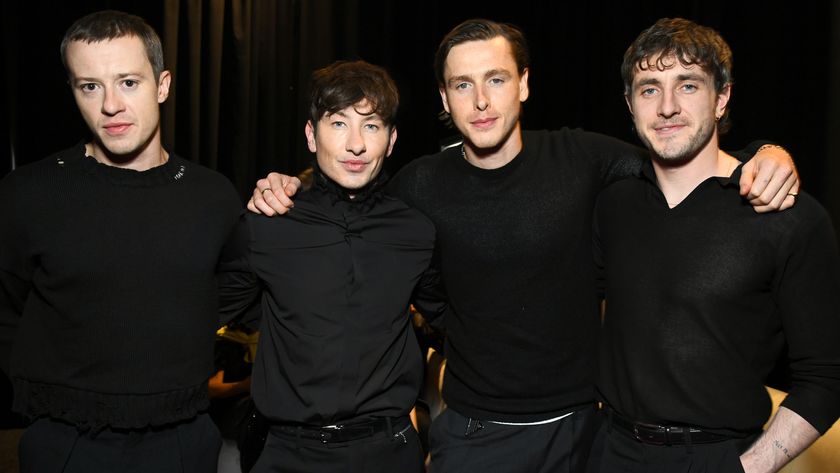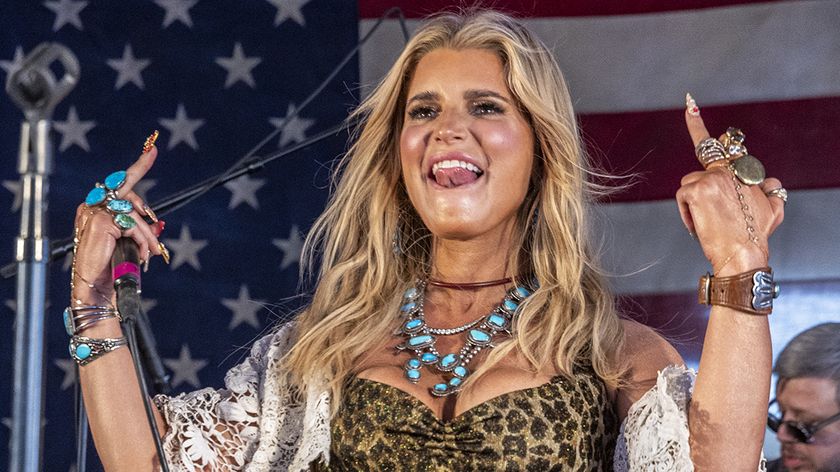10 questions for Raging Speedhorn
Jim Palmer and Jamie Thompson talk guitars, gear and live disasters
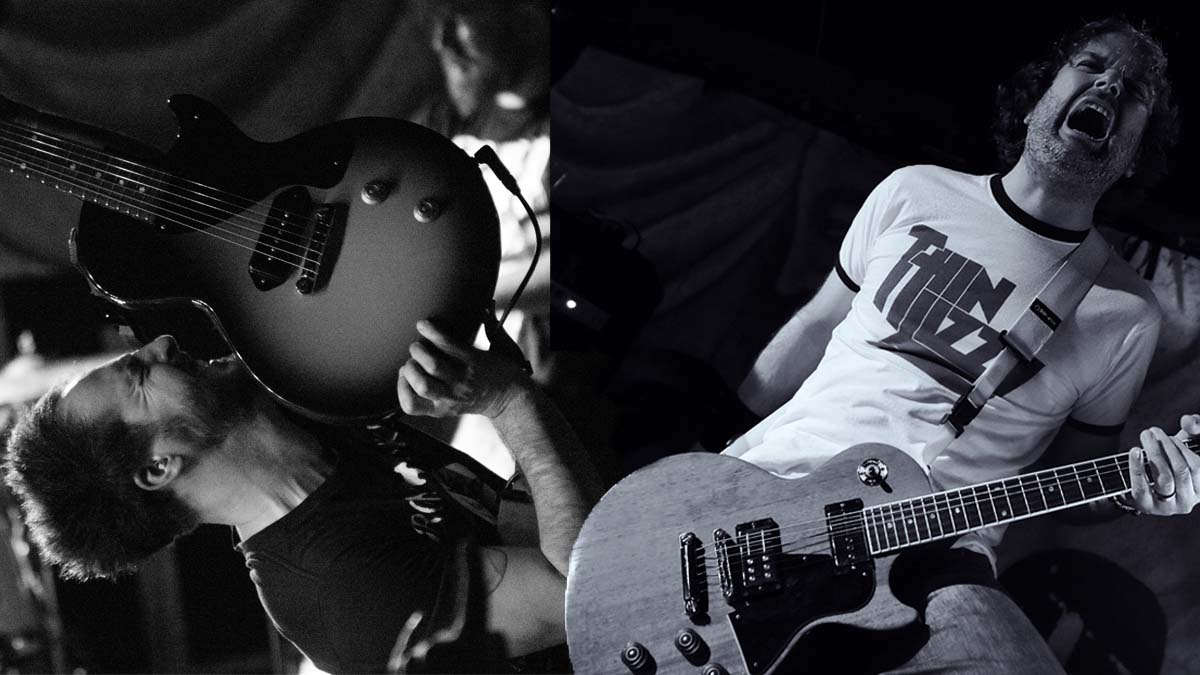
Now readying the release of their first record in 11 years, Northampton sludge-metallers Raging Speedhorn are back and very much alive. New full-length Lost Ritual is as aggressive and punishing a listen as you'd expect, as guitarists Jim Palmer and Jamie Thompson smash groove-heavy riffs back and forth, with no let up in the destruction left in their wake.
Before the album drops on 15 July, Jamie and Jim sat down with MusicRadar to spill the beans on their most treasured guitars, not taking the 'speed' in Speedhorn too literally and why you should never underestimate the importance of your parents on your guitar playing...
1. What was your first guitar and when did you get it?
Jim Palmer: "My first guitar was an old beat-up classical guitar that belonged to my mum. I've never really been sure of who made it, but it's actually a really well-made instrument. I still have it. It has an enormous neck, huge in profile, with no neck taper and no radius. It was tough to learn on, but I'm grateful for that, as it really helped with mastering chord stretches and toughening up my fingers.
"It sat around the house for years, more of an ornament than an instrument. Occasionally at parties, or when we had guests, it would get dusted off and someone would play it, usually badly! One day, when I was about 10 or so, I picked it up and started strumming on it and it seemed like for the next four years or so I didn't put the thing down - I was hooked.
"When I got to the point that I could actually play fairly proficiently, my dad took me to the local music shop and bought me my first electric guitar, a secondhand Ibanez Blazer. It was an amazing guitar. I wish I still had it."
Jamie Thompson: "My first guitar was an old Audition 3/4 guitar that my mum got me for my 13th birthday. I did actually ask for a bass, so thanks mum, for stopping me making such a terrible mistake! [laughs]"
2. The building's burning down - what one guitar do you save?
JP: "That's a tough one - I have so many with sentimental value. Probably my Yamaha AES Tele prototype. It's a Yamaha AES 800 neck on an alder Tele body that I've used for almost everything I've recorded in the studio. That thing has been part of nearly everything I've written or been involved in. It's old, beat-up and had hundreds of modifications over the years, but I love it. It's my go-to guitar. If not that, then the classical guitar I started out on, but I'd have a good go at saving all of them."
Get the MusicRadar Newsletter
Want all the hottest music and gear news, reviews, deals, features and more, direct to your inbox? Sign up here.
JT: "I've got an old battered Fender Highway One Telecaster that I'd save. On a previous tour, I accidentally destroyed my Les Paul, leaving me guitar-less for an upcoming tour. My dad was good enough to buy me this and bail me out, so thanks dad!"
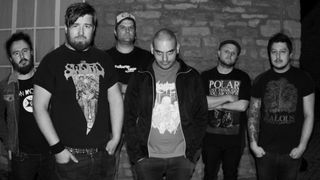
3. Is there a guitar, or piece of gear, that you regret letting go?
JP: "That would have to be my 1984 Japanese Squier Strat. It was perfect - better than any Strat I've ever played since, USA or otherwise. It was the perfect weight, the perfect feel and it sounded like nothing else. It's not hard to see why those Japanese instruments have become so sought-after and risen in value.
"I'm a massive fan of Stevie Ray Vaughan and Rory Gallagher, so that guitar fitted the bill for that side of my playing perfectly. Not that I can play anywhere near as good as those guys did. I've always regretted letting that go."
JT: "The aforementioned Les Paul, for sure! Both figuratively and literally."
4. And what's the next piece of gear you'd like to acquire?
I love Yamaha's instruments - they are in a class of their own
JP: "I've always wanted a Yamaha SG2000. I played on one years ago and it blew me away! I've not found one yet in the right condition, with a good history at the right price, though. I love Yamaha's instruments - they are in a class of their own, which is why I'm currently looking at the new model, the Revstar. I've recently had the chance to try a few, and they are outstanding. I've owned eight Gibsons ranging from LP Special reissues, Melody Makers, LP Standards through to LP Customs, and they are wonderful instruments, but they just don't play like a good Yamaha to me."
JT: "It sounds boring, but a remote for my Kemper Profiling Amp. Not very exciting, but neither is stomping on my current controller mid-gig and having nothing happen."
5. Is there an aspect of guitar playing that you'd like to be better at?
JP: "I think that you should always strive to be better at all aspects of playing, no matter how good you are. That follows through into everything in life as well, I think. Don't get me wrong: be satisfied with where you are, but always work hard to improve, otherwise you can stagnate. I'd love to be as good at fingerpicking styles as I used to be, and my lead playing always needs improvement."
JT: "I'm sure I could play a lot faster than I do, but I never seem to have a call for it in Raging Speedhorn! Maybe I'll bust out some proper early Hetfield stuff on our next album. [laughs]"
6. What are you doing five minutes before you go onstage?
JP: "Hiding, steering clear of people and trying to have a moment of peace to myself while having a nervous breakdown! [laughs] I get horrendous nerves and anxiety before performances. Always have. I see it as a good thing, though, instead of bad. Someone once said to me that it's when you stop getting nervous before a show that you have to worry.
You'd be amazed what a simple hug can achieve for the unity of the band
"Just as I'm about to go on, I always like to give the other guys in the band a hug. Sounds strange, but you'd be amazed what a simple hug can achieve for the unity of the band, and a hug says a lot without any need for words. Not very 'metal' I know, but..."
JT: "It's a cliché, especially in this band, but probably drinking. Or arguing with someone. Or both."
7. ...And five minutes after?
JP: "Five minutes after I get onstage or five minutes after I get off stage? Once I'm onstage I very rarely know what's going on - I kind of become a different person in a way, and am too busy concentrating on playing my ass off. Onstage is the place where I like to let go of everything you store up in life... a release, if you will. So I'm usually that busy in the moment that I don't remember a great deal.
"After I come offstage I like to sit, have a beer or 20, and just relax and reflect. I also like to take a wonder out into the audience and have a chat with people. It's great to get opinions on the show, and it's a good chance to meet fans on a normal, person-to-person level."
JT: "Sitting in a sweaty heap trying to catch my breath. Possibly drinking. Also possibly arguing."
8. What item of gear would you take with you to a desert island?
A Boss pedal would be good for opening coconuts
JP: "An edible guitar, maybe? Seriously, though, I'd probably take one of my ukuleles. It would be great to sit in the sun, the sound of the waves crashing playing along to nature's symphony on a uke. Again, not very 'metal', but hey. Either that or my Washburn parlour guitar as that's a great guitar to just sit and jam on."
JT: "Probably my acoustic for obvious reasons regarding electricity. Or maybe a Boss pedal - that'd be good for opening coconuts, I think."
9. What's the worst thing that's ever happened to you onstage?
You name any stupid thing that could happen and it's probably happened
JP: "I had a pint glass thrown at me once while I was playing at a gig in Liverpool, and it clipped my head and smashed on the cymbal behind me. I just shouted what a bad shot it was, although thinking back, it could have been nasty.
"I've also had numerous occasions where drunk people have got onstage somehow and been verbally abusive, but I tend to just ignore it and carry on regardless. That was years ago when security wasn't great or even non-existent. Most places have much better security and door staff now, so generally that sort of thing doesn't happen anymore."
JT: "Falling over on the main stage at major festivals, smashing vintage Gibsons, having my clothes pulled off, falling off the barrier and smashing my arm. You name any stupid thing that could happen and it's probably happened."
10. What advice would you give your younger self about playing the guitar?
JP: "Enjoy it, but work hard. It has to be a good balance between the two. I hear so many young players who seem to expect everything on a plate, but that's not knocking anyone - I was the same when I was younger.
"There are so many amazing resources and tools for learning now, though. Back when I was learning, it was Bert Weedon's Play In A Day book or jamming along to records. It's hard work, it's rarely financially rewarding, but to learn and better yourself is the best reward in any aspect of life. Getting to jam along with friends and perform in front of people is the best thing on Earth. I think the balance between working hard and enjoyment is maybe something that I could have gotten better at when I was younger. [laughs]"
JT: "Write decent songs! That's not to say don't be good at your instrument, but any amount of scales or shredding is worthless without a killer song. See also: never releasing an instrumental guitar shredding album."
Lost Ritual is out on 15 July 2016. Raging Speedhorn tour the UK in July:
Fri 15 Jul - Colchester, Arts Centre
Sat 16 Jul - Cardiff, Clwb Ifor Bach
Sun 17 Jul - Liverpool, Arts Club Loft
Mon 18 Jul - Glasgow, O2 ABC 2
Tue 19 Jul - Leeds, Key Club
Wed 20 Jul - Birmingham, O2 Academy 3
Thu 21 Jul - Portsmouth, Wedgewood Rooms
Fri 22 Jul - Oxford, The Wheatsheaf
Sat 23 Jul - London, The Underworld
Mike is Editor-in-Chief of GuitarWorld.com, in addition to being an offset fiend and recovering pedal addict. He has a master's degree in journalism, and has spent the past decade writing and editing for guitar publications including MusicRadar, Total Guitar and Guitarist, as well as a decade-and-a-half performing in bands of variable genre (and quality). In his free time, you'll find him making progressive instrumental rock under the nom de plume Maebe.
![Chris Hayes [left] wears a purple checked shirt and plays his 1957 Stratocaster in the studio; Michael J. Fox tears it up onstage as Marty McFly in the 1985 blockbuster Back To The Future.](https://cdn.mos.cms.futurecdn.net/nWZUSbFAwA6EqQdruLmXXh-840-80.jpg)
“We’re looking at the movie going, ‘Urgh! It’s kinda cheesy. I don’t know if this is going to work”: How Chris Hayes wrote Huey Lewis and the News’ Back To The Future hit Power Of Love in his pyjamas
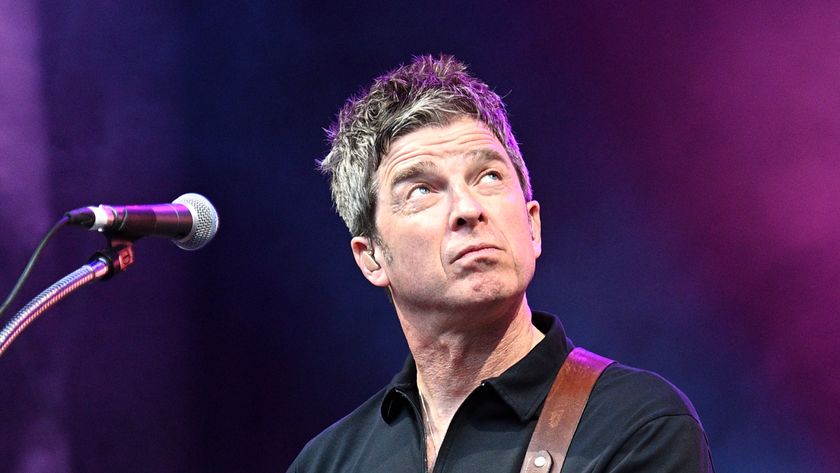
“I thought it’d be a big deal, but I was a bit taken aback by just how much of a big deal it was”: Noel Gallagher finally speaks about Oasis ticket chaos

